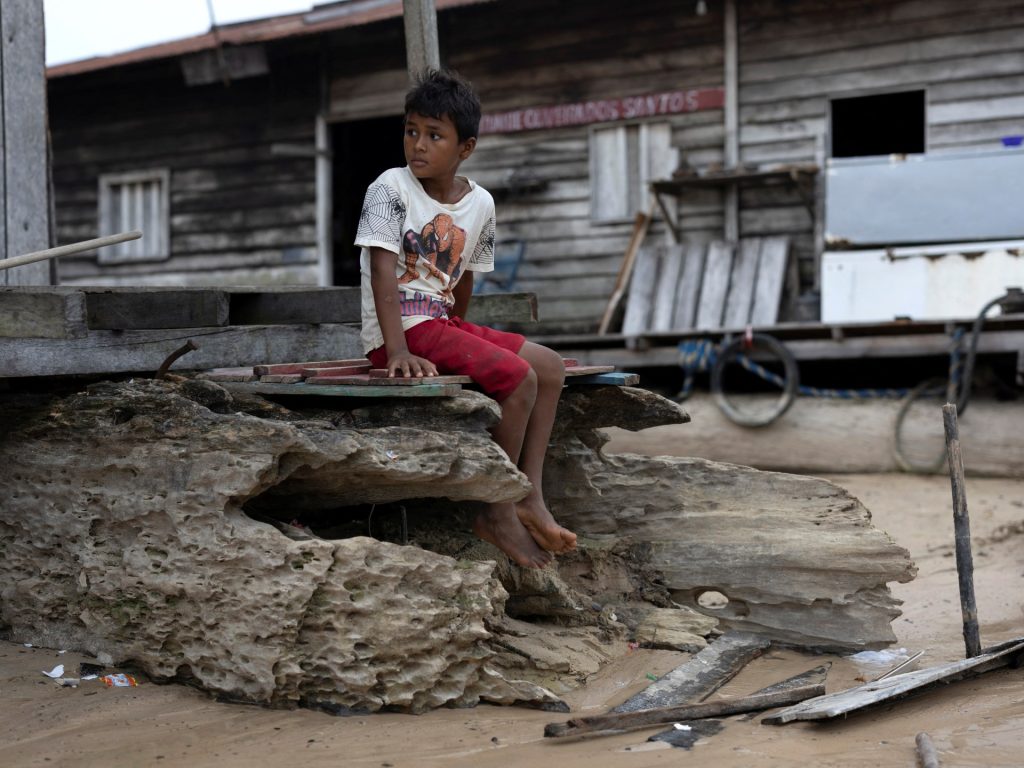UNICEF is urging leaders at the upcoming COP29 summit in Azerbaijan to increase climate financing for children, as more than 420,000 children in the Amazon basin have been affected by dangerous levels of water scarcity and drought in Brazil, Colombia, and Peru. The ongoing record-breaking drought is taking a toll on Indigenous and other communities reliant on boat connections for essential resources. UNICEF Executive Director Catherine Russell highlighted the devastating impact on families, leaving children without access to adequate food, water, health care, and schools. The agency called for critical actions, including a dramatic increase in climate financing for children to mitigate the effects of extreme climate crises.
The resulting food insecurity in the Amazon has increased the risk of child malnutrition, with less access to drinking water potentially leading to a rise in infectious diseases among children. In Brazil’s Amazon region alone, over 1,700 schools and 760 medical clinics have had to close or become inaccessible due to low river levels. In Colombia’s Amazon, lack of drinking water and food has forced 130 schools to suspend classes, while in Peru, more than 50 clinics have become inaccessible. UNICEF has requested $10 million in the coming months to help the affected communities in these countries, including providing water and sending out health brigades.
Weather observation agencies attribute the drought across the Amazon basin to the 2023-2024 El Nino climate phenomenon in the Pacific. The insufficient rain and shrinking rivers in the rainforest have exacerbated forest fires, disrupted hydroelectric power generation, and dried out crops in parts of Brazil, Bolivia, Colombia, Ecuador, Peru, and Venezuela. Despite these environmental setbacks, Brazil’s Environment Minister Marina Silva stated that it is possible for governments to confront climate change. Silva made this statement after reporting a 30 percent decrease in deforestation in Brazil’s Amazon in the 12 months through July, the smallest area destroyed in nine years.
Two years ago, Brazilian President Luiz Inacio Lula da Silva promised to step up enforcement of environmental laws to combat deforestation, which had surged under his predecessor, Jair Bolsonaro. Silva praised the significant decrease in deforestation as the fruit of their labor, showing progress in efforts to protect the Amazon. Likewise, Colombia reported a historic 36 percent decrease in deforestation in 2023, demonstrating positive steps in protecting their forests as well. This progress reflects the importance of strong enforcement of laws and measures to preserve the Amazon and combat climate change effectively.
The climate crisis in the Amazon has led to severe consequences for children and communities reliant on the rainforest for resources. The impact of water scarcity and drought has left many children without access to vital services such as food, water, health care, and education. The situation calls for urgent action, including increased climate financing for children and support for affected communities in Brazil, Colombia, and Peru. Efforts to mitigate climate crises and protect the Amazon are crucial not only for the well-being of children today but also for future generations and the health of the planet as a whole. It is essential for leaders to prioritize climate action and provide necessary resources to address the challenges faced by vulnerable populations in the Amazon region.















